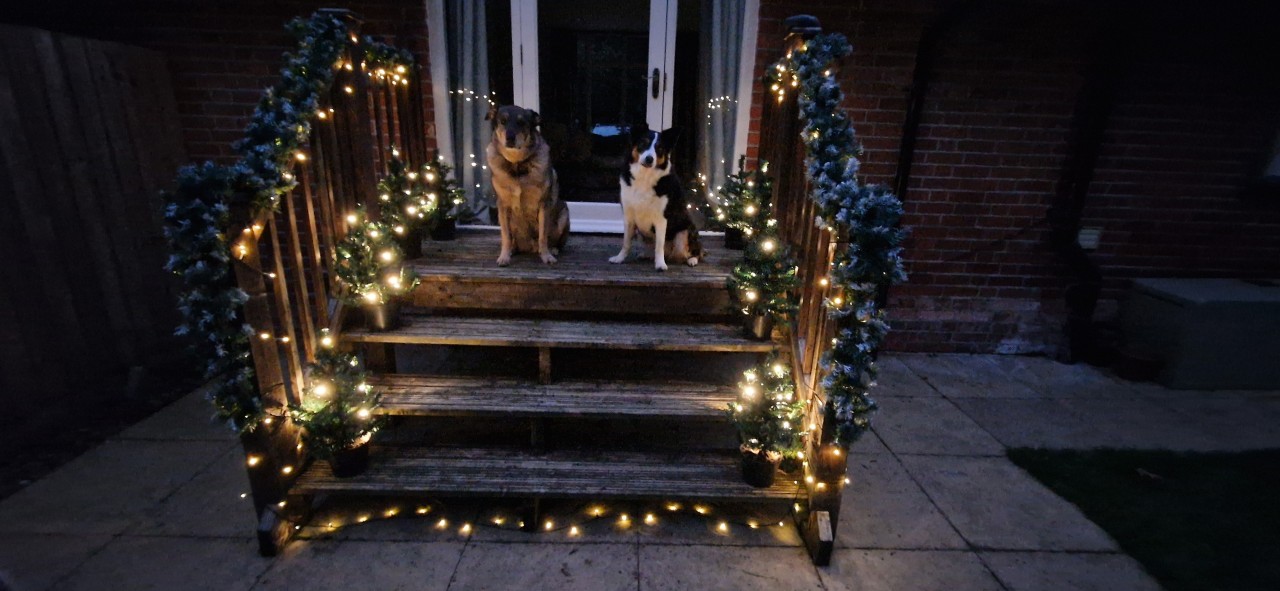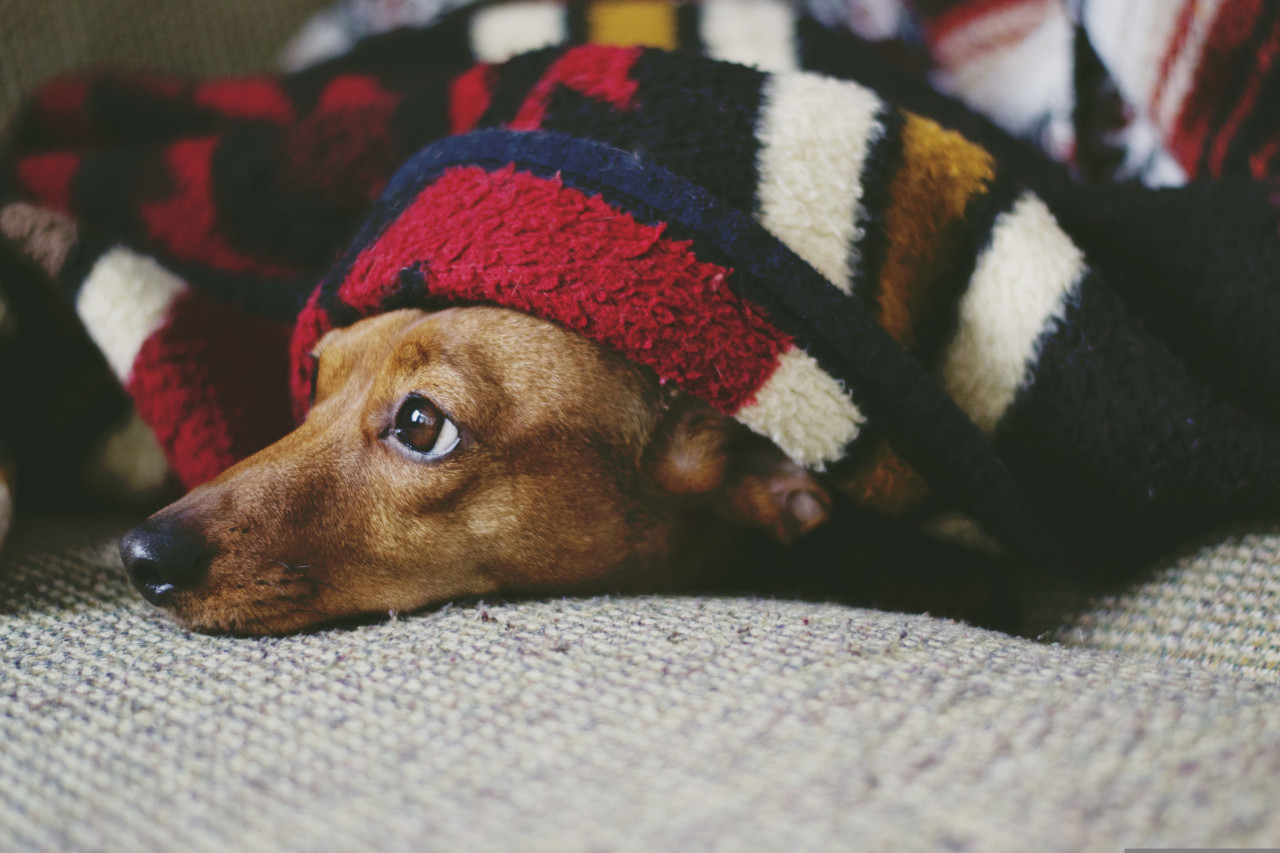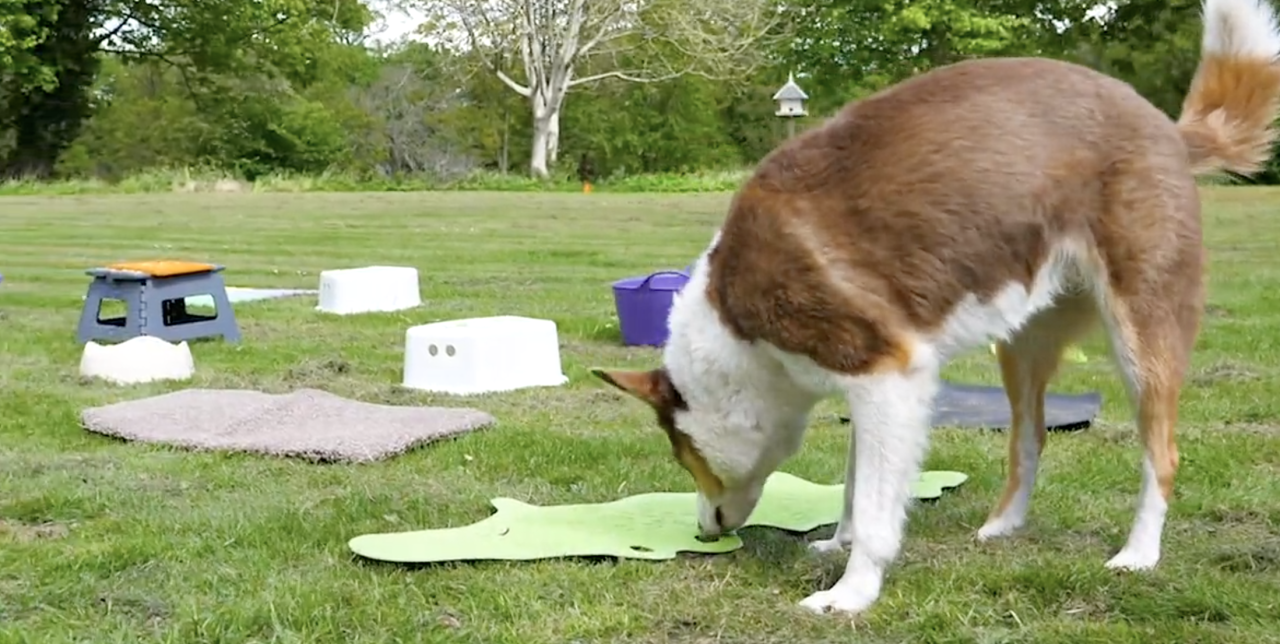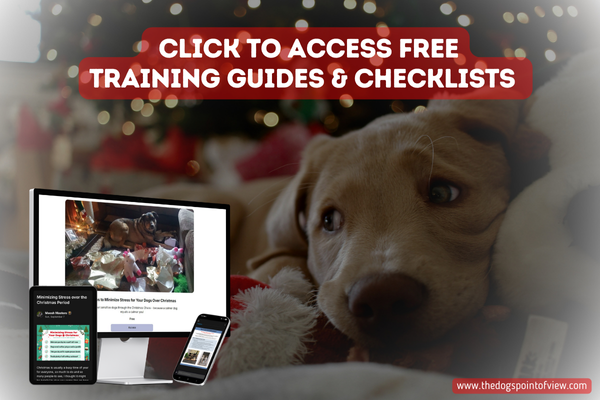Minimizing Stress for Your Romanian Dogs at Christmas

Christmas can be challenging for many dogs, especially Romanian & overseas rescue dogs. These tips can help reduce pressure and prevent overwhelm.
Many of our beautiful Romanian and overseas rescue dogs are often more sensitive to changes in routine, environment, and activity levels.
This article shares some key principles for reducing pressure and supporting your dogs through the festive period, helping to minimise stress and prevent problems from escalating.

Minimizing Stress for Your Romanian & Overseas Rescue Dogs at Christmas
Christmas is usually a busy time of year for everyone - so much to do and so many people to see. The last thing you want is your dog's feeling overwhelmed and behaving in ways that add even more stress to an already busy time, right?
Many of our natural world dogs can struggle with how busy our lives are at the best of times, so the Christmas period can easily send them into a spin.
Routines get disrupted, furniture gets moved, strange decorations appear, trees suddenly live indoors, and flashing lights pop up everywhere. Add to that the weird and wonderful people floating in and out of the house - some of whom even stay for days - and it’s a lot for any dog to process.
The weather is usually miserable, walks may be shorter or more irregular, dogs may be left alone for longer than usual, and with food everywhere, even the best-managed dogs can find themselves getting hold of things they shouldn’t.
Many people don’t realise just how much these changes can impact a dog’s stress levels - and when stress builds, behaviour often changes with it. While this advice applies to all dogs, it’s especially important for nervous, anxious, or fearful dogs.
Whether your dog already has challenges or not, providing a little extra support and management over the festive period can make a huge difference.
#1 - Routine & Predictability

One of the most powerful ways to support your dog during periods of change is by keeping their routine as consistent as possible.
Aim to stick to normal mealtimes, walk times, and rest periods. Predictability helps dogs feel safe, and when their world feels more predictable, they’re better able to tolerate the unexpected things that come with Christmas.
Rest is especially important. Just like us, dogs can become irritable and short-fused when they haven’t had enough sleep - and overtired dogs are far more likely to struggle.
#2 - Create a Quiet Safe Space

A quiet, low-traffic safe space allows your dog to rest, decompress, and escape the hustle and bustle when they need to.
This might be a separate room or a quiet corner of the house where they can enjoy calming enrichment such as sniffing, licking, or chewing — or simply sleep undisturbed.
If your dog isn’t used to spending time away from household activity, it’s important to help them get comfortable with this before Christmas. Suddenly shutting a dog away when visitors arrive can increase stress rather than reduce it.
#3 - Regular Pressure Breaks

Even dogs who are generally sociable can struggle when the house is busier than usual.
Dogs don’t always choose rest for themselves, especially when there’s lots going on. Without breaks, they can become overstimulated, overtired, and stressed.
For nervous or anxious dogs, these breaks may need to be more frequent and more supported. Proactive pressure breaks are a simple but incredibly effective way to prevent stress from escalating.
#4 - Visitor Management

One of the most important rules during the festive period is this: a resting dog must be left alone.
This applies whether your dog is in their safe space, their bed or just resting anywhere in the house.
All visitors - especially children - need to understand this clearly.
With busy households, early signs of stress are easily missed. When those subtle signals are overlooked, that’s when incidents appear to come “out of nowhere” - even though the dog has likely been communicating discomfort for some time.
If your dog is nervous, fearful or reactive to visitors - make sure you clearly instruct any guests on what they need to do (or not do) to help minimize stress or problems for your dogs.
Christmas is not the time to work on training. Behaviour change requires focus and consistency - neither of which is realistic during the holidays.
Strong management, clear boundaries, and reduced pressure are the priority. Training can resume once life has settled again.
#5 - Avoid too Much Over-Arousing Exercise

It’s a common misconception that more exercise will automatically calm a dog. In reality, intense or high-energy activity can leave dogs more wired rather than relaxed.
For many dogs, slow sniff-based walks, scent games, and problem-solving activities can be more effective at reducing stress than long, fast walks or repetitive fetch.
Sniffing and foraging support natural calming processes and can help dogs regulate their breathing, heart rate, and emotional state - all while meeting important instinctive needs.
#6 - Food Management

Food has a significant impact on behaviour, particularly for sensitive dogs.
Digestive discomfort can increase irritability, restlessness, and reactivity. On top of that, many common Christmas foods are toxic to dogs, including chocolate, alcohol, grapes, onions, mince pies, Christmas pudding, and foods containing xylitol.
Good food management protects both your dog’s physical health and emotional wellbeing.
**If your dog ingests anything toxic - contact your vet immediately.
#7 - Self-Soothing Enrichment & Rebalancing Support

Have calming enrichment options readily available to help your dog self-soothe.
Sniffing, licking, and chewing are naturally regulating activities and can help reduce stress build-up. Simple activities such as snuffle mats, lick mats, chews, puzzle toys, or scatter feeding can make a big difference.
If you’d like more detailed information and support in putting these ideas into practice, I’ve created a small collection of short videos and printable handouts for you.
These walk you through how to apply the principles shared here in a simple, practical way - particularly during busy periods like Christmas.
Simply click the picture below to access 👇

A Final Thought
Christmas doesn’t have to be stressful for your dog - but it does require a little extra awareness, planning, and compassion.
Reducing pressure, managing the environment, and supporting recovery can help your dog cope far more comfortably with the festive period - and help everyone enjoy it a bit more.
With All of That Out of The Way…
All that Remains is for me to wish you a very Merry Christmas & A Happy, Healthy and Prosperous New Year from from DOGsPoV HQ.
Xxx

Categories: : Fearful Romanian Dogs, Living with Romanian Rescue Dogs, Understanding Your Romanian Dog
 Meesh Masters
Meesh Masters 
